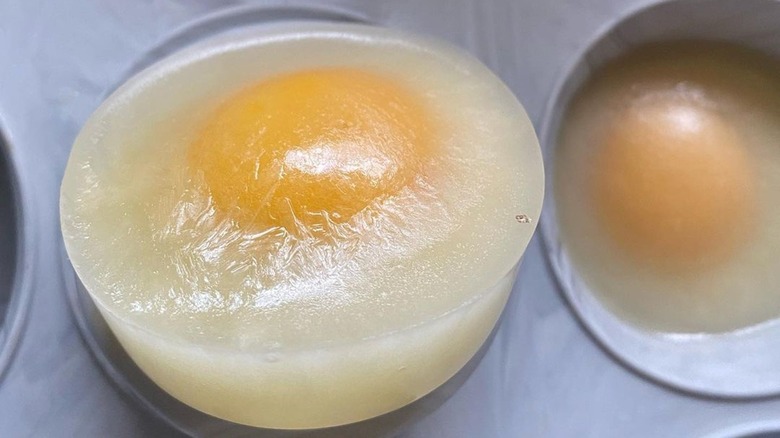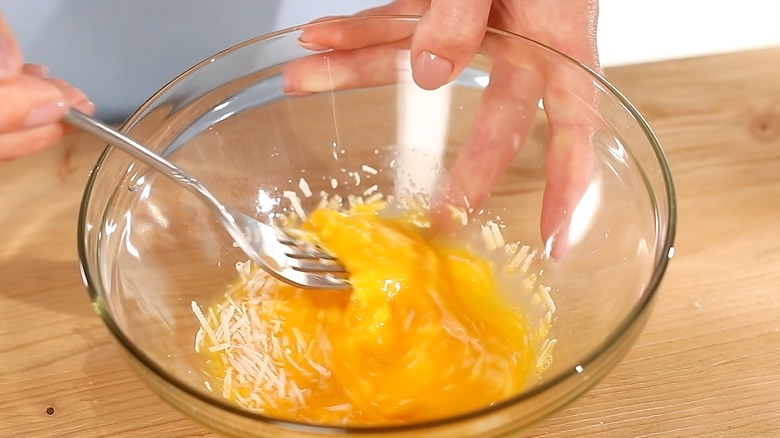The Important Step To Follow When Cooking With Frozen Eggs
Whether your baking recipe calls for more whites than yolks or you want to make your egg supply last months instead of weeks, freezing eggs is a great way to preserve them for future cooking endeavors. Freezing whole eggs or separated yolks and whites will extend their use for up to a year if properly stored. You can break them out of the freezer, thaw them and use them in recipes from tasty omelets to baked goods with great success. However, the important step to follow when cooking with frozen eggs is to give them a whisk between thawing them and cooking them.
Freezing eggs crystalizes the moisture inside of them, affecting both the whites and the yolks differently. For egg yolks, the freezing process causes them to gelatinize, which results in a jelly-like or rubbery texture when thawed. Whisking them will help break down and more evenly distribute their components. It'll also help them emulsify better with other liquid ingredients if you're using them in batters, sauces, or custard desserts.
Even though egg whites don't face the same gelatinization that egg yolks do in the freezer, whisking them will reintroduce air and reactivate their fluffiness in both scrambles and baked goods. Plus, most applications for egg whites in cooking or baking require whisking or whipping them, anyways.
Tips for freezing and thawing eggs
Freezing eggs is a simple process, with a few different steps depending on which part of the egg you are freezing. Removing the shell is crucial for freezing as the liquid inside will expand. If you're freezing more than one whole egg, whisk them until the whites and yolks are combined but not foamy. Then freeze them in plastic bags or air-tight containers.
Egg whites require the least preparation and freeze very well. If you want to use them in baking recipes that call for specific measurements, proportion your egg whites by freezing them separately in plastic ice-cube trays or cupcake trays. Once the whites have frozen, pop them out of their trays and transfer the individual frozen egg white cubes into an air-tight container.
Egg yolks are more finicky because of that gelatinization upon freezing. Adding a pinch of salt or sugar to lightly stirred egg yolks before freezing them helps reduce the negative textural effects.
A frozen egg in any of its forms needs to be thawed before you cook it. You can transfer the frozen egg to the fridge to thaw overnight, or run a sealed container under cold water until they're defrosted, but you should use thawed eggs within 24 hours. Many recipes for thawed egg whites recommend waiting 30 minutes after thawing them before whisking to maximize their fluff. Furthermore, thawed frozen eggs may take a little longer to cook or whisk because they'll have greater moisture content than fresh eggs.

